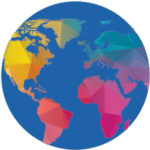Donor funds, when supporting the right efforts, can transform people’s lives and communities. The issues we focus on in this year’s High Impact Giving Guide are among the most challenging facing society, but the programs and organizations we profile demonstrate daily that positive impact can be created. More nonprofits making on global health

What It Does
Over three decades ago, two Indian physicians founded SEARCH to serve neglected rural and tribal people in the Gadchiroli district of Maharashtra, India, a population of roughly 1 million. People living in these remote villages have historically faced high rates of poverty, illiteracy, and poor health outcomes. To address these challenges, SEARCH worked with the community to create a community-based health system to develop and test local health solutions; these solutions have since spread throughout the world.
SEARCH has focused on improving maternal and child health by training rural women as Village Health Workers (VHWs) in 87 villages to support expecting mothers and newborn children. VHWs educate pregnant mothers and are present at home births. VHWs then visit new mothers and babies in their homes repeatedly during the
first crucial weeks of life, equipped with simple but life-saving equipment such as blankets, a resuscitation bag and mask, soap, a thermometer, weighing scale, and medications to manage infections. In addition to diagnosing problems, VHWs monitor the baby’s growth and help the mother practice healthy behaviors such as early breastfeeding, keeping the baby warm, and maintaining good hygiene. In particular, SEARCH has pioneered the widespread use of Home-Based Newborn Care (HBNC) packages. HBNC packages are a collection of simple, cost-effective interventions such as home visits and using sterile blades to cut umbilical cords that decades of research show save newborn lives. SEARCH’s successful model has been adopted by the Indian government, which sends trainers of 800,000 government VHWs to SEARCH training facilities in Gadchiroli. Nonprofits in India and around the world have also adopted this model. Based on SEARCH’s groundbreaking work, the World Health Organization and UNICEF now recommend home visits in a baby’s first week of life to improve newborn survival in under-resourced settings. From 2016 to 2017, nearly 11 million rural newborns in India received HBNC.
How Effective It Is
SEARCH employs a robust monitoring and evaluation strategy to track and improve its outcomes. To evaluate its model and share what it has learned, SEARCH conducted landmark field trials from 1988 to 1998, which proved that their approach cut infant pneumonia death rates up to 80% as compared to control villages. Newborn deaths, as measured by neonatal mortality rate, also decreased by 70% in SEARCH villages compared to control areas during an evaluation between the years 1993 and 2003. Additionally, maternal morbidities in SEARCH intervention areas were reduced by 49%. To address changing health and development needs in the communities it serves, SEARCH has also created programming in alcohol and tobacco control, youth leadership, and tribal health.
How You Can Help
When compared with other interventions targeting newborn health, HBNC is one of the most cost-effective: The cost per newborn life saved is less than $300, and the amount per mother-newborn pair served is less than $10. Donors can give to SEARCH through the U.S.-based 501(c)(3), Indians for Collective Action (find SEARCH in the drop-down menu at http://icaonline.org/donate/) or visit the SEARCH site.
More Ways to Help — Other nonprofits using innovative ways to implement local health programs include Lwala Community Alliance, which provides direct community outreach for maternal and child health in Kenya, and the Comprehensive Rural Health Project, Jamkhed (CRHP), which has pioneered community-based approaches to health in Maharashtra, India. Living Goods in Uganda/Kenya and BRAC in 11 countries use door-to-door entrepreneurial sales approaches to incentivize health workers and cover salary and distribution costs.
